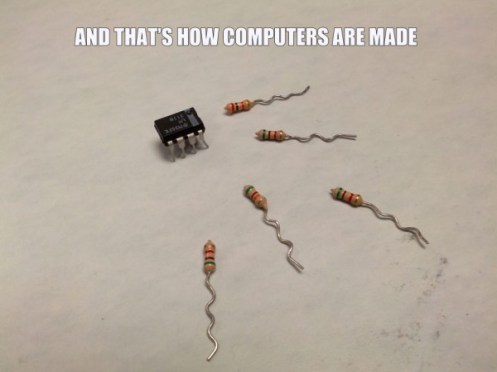-
Home / The Artificial Intelligence Revolution: Part 1 - Wait But Why
Was this valuable to you?
other links and editorials from jeffs
How about financially supporting the OP/author with a few pennies (on us) by upvoting? Just click the show link and reward your karma. Or leave a comment with your thoughts. Here's some free karma to start.
Part 1 of 2: "The Road to Superintelligence". Artificial Intelligence — the topic everyone in the world should be talking about.
About technology
 technologyhttps://valme.io/c/technologyc_prompt
technologyhttps://valme.io/c/technologyc_prompt"I'm doing a (free) operating system (just a hobby, won't be big and professional like gnu) for 386(486) AT clones." - Linus Torvalds, father of Linux on his hobby that ended up changing the world of technology


This is a great article for non-techies to understand AI and some of the potential. My comments, though, are going to be directed more at part 2: The AI Revolution: Our Immortality or Extinction because that's where he talks about the morality/philosophical issues.
As I mentioned in this comment:
One of the biggest problems I see with AI efforts is that so much of the research is government-funded (in fact, Kurzweil is one of five members of the Army Science Advisory Group (ASAG) which advises on priorities for science research). Thus, a lot of AI funding goes into warfare, weapons development, and finding enemies. These are projects Kurzweil is VERY excited about. But who's deciding the standards for enemies? And what protects the "friendlies" from AI weaponry? Certainly not the law.
The biggest problem I see is discussed in my open letter to Bryan Johnson: philosophy - not technology - is the core operating system to improve if you want to change the world. We have far too many people working on amazing and exciting technology efforts that don't understand the first thing about philosophy/morality. I'm all for transhumanism and I agree with the article that, one day, immortality will be possible. But I question if I'd want to live forever in an AI world made by Kurzweil and his army buddies.